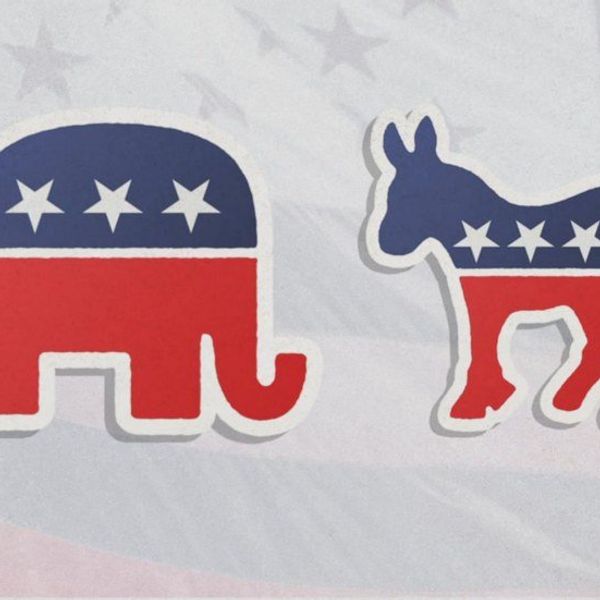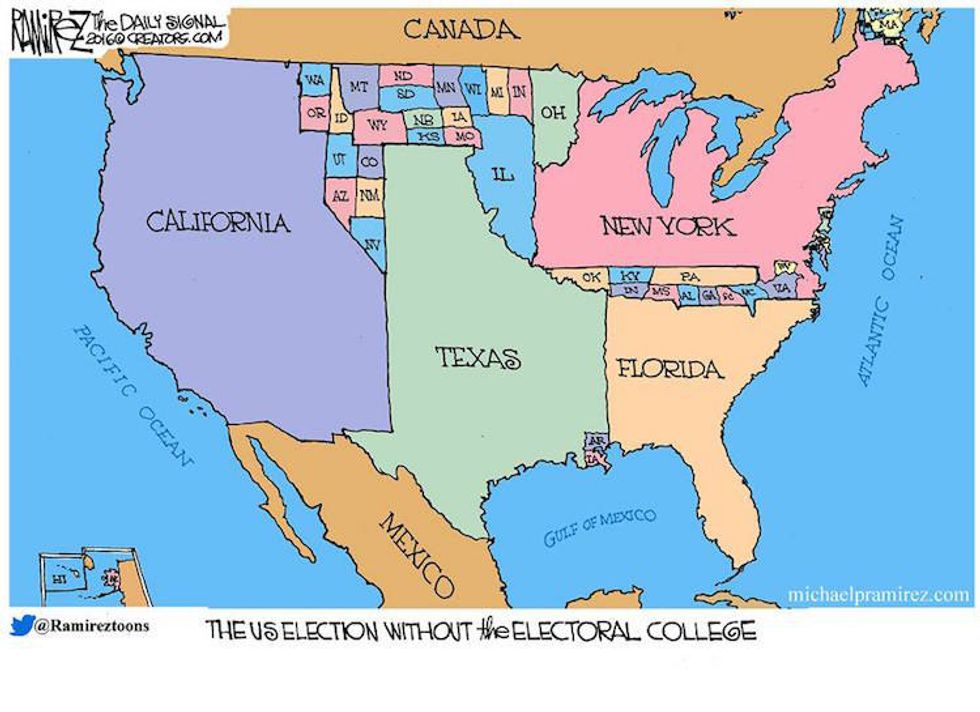After the results of this year's election, our electoral system has once again been put under scrutiny and criticism. The opposition to the current voting system is often voiced by the "losing" side in an election. Just as often, the opponents of our electoral college don't understand that we are not a pure democracy. As of writing this article, Hillary Clinton leads against Donald Trump by 1.7 million in the popular vote. In a pure democracy, she would have won, but we are not a pure democracy. We are a democratic republic.
The electoral college was put into place for multiple reasons. One of the biggest reasons is equal representation. In a presidential election, each state gets at least three electors, a minimum for one representative and two senators. The states who have a high population get more representatives and thus more electors for the electoral college. This forces candidates to not only focus on the big states, but also the smaller and swing states. Without the electoral college, large and highly popular states would dominate an election. The smaller states would be ignored and ultimately not have their voices represented. That's what happens under a pure democracy-- the majority rules completely.
The electoral college also encourages coalition building. One has to find a way to appeal to voters in the South and the Midwest or Hawaii and Maine. This forces candidates to have more than just regional appeal in order to win an election. Once again, unlike in a pure democracy, everyone's voices and concerns would be heard and compromises and promises would have to be made.
This also streamlines the election cycle. No, the majority did not vote for Hillary, nor did the majority vote for Trump. Neither candidate won more than 50% of the popular vote. Instead, we go by the electoral college were a clear majority can be easily decided. Trump received 47% of the popular vote and Hillary won 48% of it so far. She is leading by 1.7 million, but that is only 1.6% higher than Trump and even less of the whole voter turnout, which was approximately 135 million. It's not a strong lead nor a majority. Run-off elections for ones as large as the presidential election would be astronomically hard to organize and execute. That would leave more room for less voter turnout and more illegitimate voting.
So when it comes to presidential elections, we are not a pure democracy. However, state and local elections are majority rules. That's where it really matters. We are a democratic republic for this reason. We have states' rights and laws. This is where your voice is not only heard, but amplified. Your state, county, and city are not completely controlled by those wearing suits in Washington D.C. We are a republic of states where the state government is separate from the federal government. Thus, we have to have separate types of elections for each office.
Next time you think your voice isn't heard in the results of an electoral college, think of where your voice needs to be really heard. If you only vote during the presidential election for the president, your voice won't be heard. Vote in all the elections that you can and participate in the democratic republic system. Make your voice heard where it counts. Demanding a popular vote for a national election will drown out your voice. The majority will rule then fall then rule. It's an unhealthy cycle, and our current system curbs it more than a popular vote would.






















